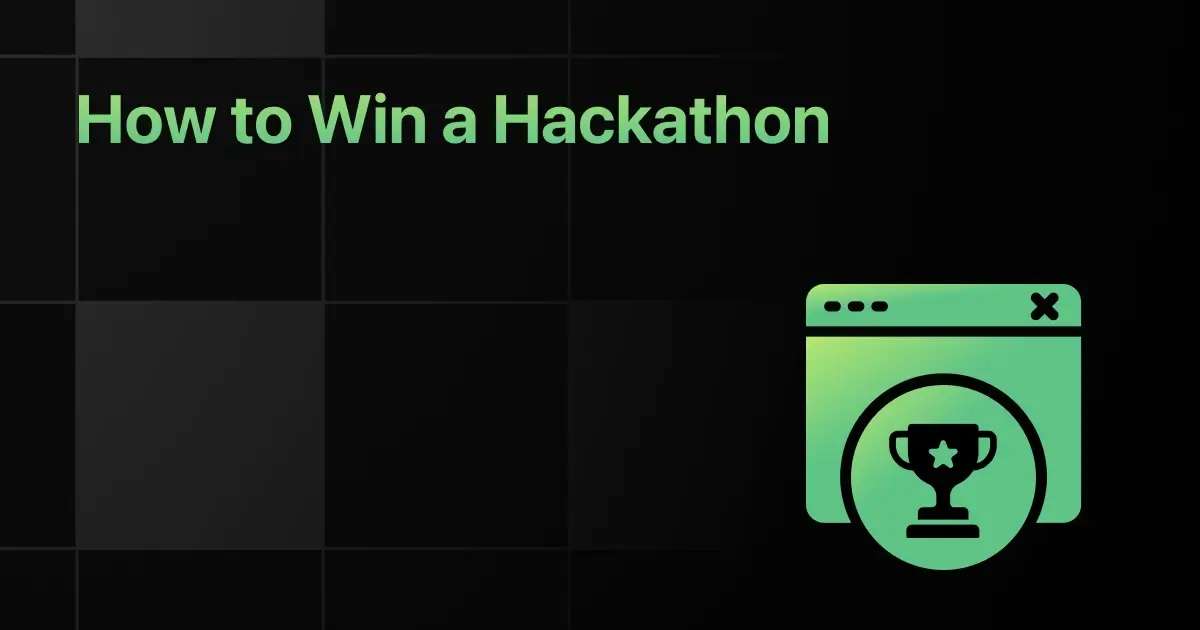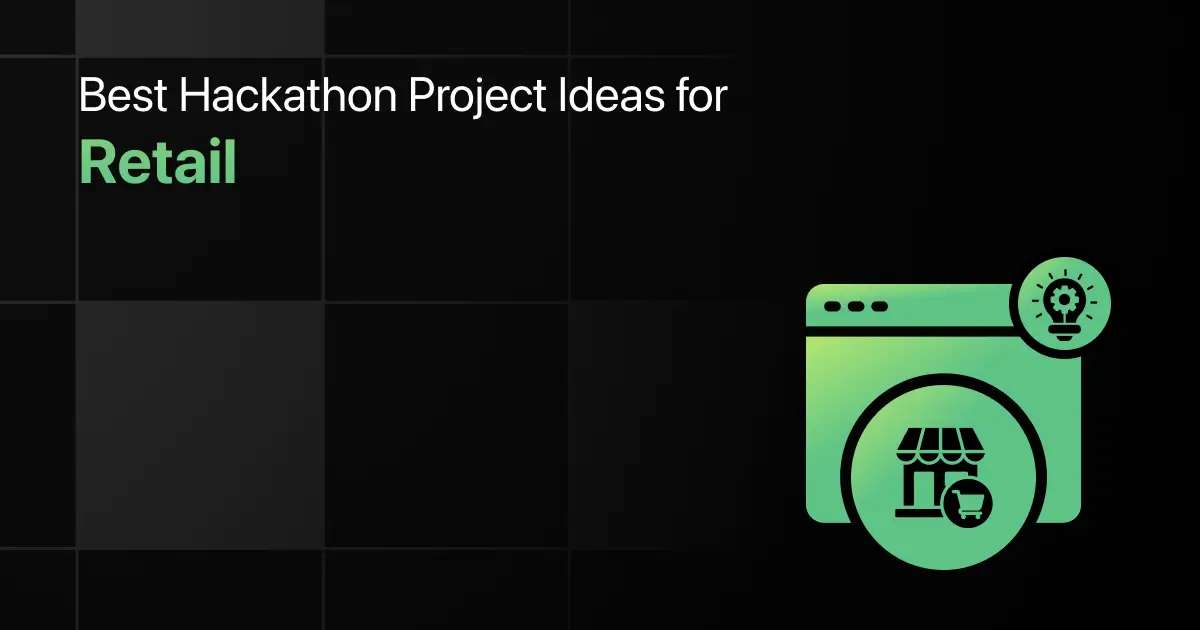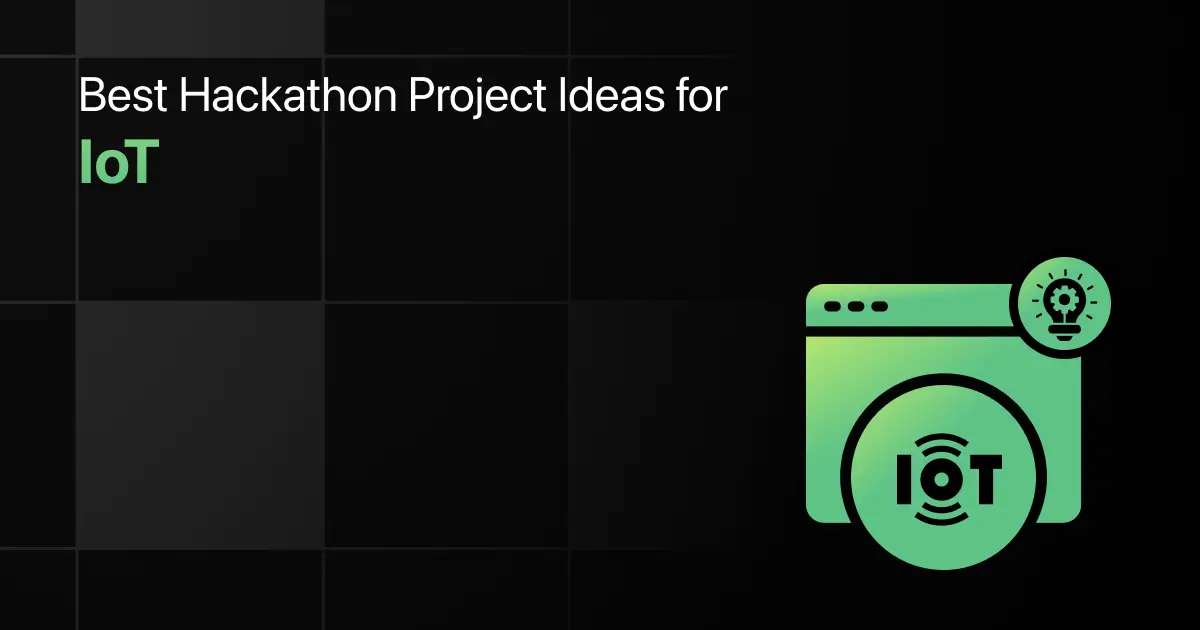How to Win a Hackathon: Tips, Strategy & Winning Examples

Have you ever wondered what separates the winning teams from the rest in a hackathon? Every participant enters with a good idea, but only a few manage to stand out and impress the judges. Understanding what makes a project successful can change how you approach your next event.
Hackathons are not just about coding. They test how well you can solve problems, work with a team, and present your solution in a clear and structured way. Winning requires a balance of creativity, technical skill, and smart planning.
In this guide, we will explore how to win a hackathon by understanding what judges look for, how to prepare effectively, and what makes certain projects rise above the competition.
Understanding How Hackathons Are Judged
Judging in hackathons is based on specific criteria such as innovation, technical implementation, usability, and overall impact. Judges assess how well a team defines the problem, the creativity of the solution, and the functionality of the prototype within the given time.
Presentation also plays an important role. Teams that explain their idea clearly, show working results, and highlight real-world applications often score higher. A well-documented project with a clear demo and practical use case always leaves a stronger impression on the judging panel.
Key Factors That Make a Hackathon Project Win
Winning a hackathon is not only about building something that works. It is about creating something meaningful, well-presented, and technically sound. Here are the main factors that judges often value the most.
1. Innovation and Creativity
Unique ideas that solve real problems or use technology in a new way always attract attention. Original thinking sets your project apart from others.
2. Technical Execution
A well-developed prototype that functions smoothly reflects strong technical skills. Judges look for working features and clear evidence of coding effort.
3. Practical Impact
Projects that address real-world issues or have potential for social or business impact are more likely to win. Feasibility and usability matter as much as innovation.
4. Team Collaboration
Strong teamwork and clear communication help deliver faster and better results. Judges appreciate teams that divide roles effectively and stay coordinated.
5. Presentation and Clarity
A confident and structured presentation can decide the outcome. Explaining your idea simply and demonstrating it clearly leaves a lasting impression.
How to Prepare for a Hackathon: Step-by-Step Guide
Preparing well before the event is the key to understanding how to win a hackathon. Successful teams plan every detail in advance, from idea selection to final presentation. Here is a step-by-step guide to help you get ready for your next hackathon:
Step 1: Understand the Theme and Problem Statements
Start by reading the hackathon brief carefully. Understand the event theme, available tracks, and judging criteria. This helps you choose an idea that aligns with the goals and has a better chance of standing out.
Step 2: Build a Strong and Balanced Team
Select teammates who bring different skills such as coding, design, and presentation. A balanced team ensures that every part of the project, from backend logic to user interface, is handled efficiently.
Step 3: Research and Finalize the Idea
Spend time researching existing solutions, gaps in the market, and possible innovations. Choose an idea that is creative yet practical enough to build within the event timeline.
Step 4: Prepare Your Tools and Development Setup
Before the hackathon starts, set up your development environment. Install required software, test APIs, and create templates or frameworks that can save time during development.
Step 5: Practice the Presentation and Demo
Plan how you will explain your idea and demonstrate your prototype. A clear and confident demo shows judges that your team understands both the technology and the problem you are solving.
Common Mistakes to Avoid While Preparing
- Ignoring the Rules and Theme: Many participants overlook event guidelines and end up building projects that do not match the theme. Always read the rules and align your idea accordingly.
- Poor Time Management: Teams often spend too much time on planning or coding one feature. Set small milestones and track progress regularly to avoid a last-minute rush.
- Choosing an Overly Broad Idea: An idea that tries to solve too many problems becomes difficult to execute. Focus on a single, clear goal that can be achieved within the given time.
- Neglecting User Experience: A technically strong project can still fail if the design is confusing. Always keep the end user in mind while building the interface and workflow.
- Skipping Rehearsal Before the Demo: Many teams fail to test or practice their presentation. A short rehearsal helps identify bugs, improve timing, and build confidence before the final pitch.
Top Winning Hackathon Project Examples
Winning projects often stand out because they solve real problems with creativity, solid execution, and clear presentation. Below are some of the top hackathon projects from 2025 that impressed judges with their innovation and practical impact.
| Project Name | Theme / Problem Solved | Technology Used | Why It Won |
|---|---|---|---|
| RehabAI | Focused on using artificial intelligence to support physical rehabilitation and recovery for patients, improving accessibility to healthcare. | Artificial Intelligence, Machine Learning, Sensor Data Analysis | Delivered a complete working prototype that addressed a real healthcare problem with clear social impact and strong technical depth. |
| Polisense.AI | Tackled energy access and climate challenges by creating AI-driven solutions for sustainable city development. | Data Analytics, AI Models, Cloud Infrastructure | Combined innovation with real-world scalability and demonstrated strong relevance to climate and energy goals. |
| Team 404 – Plaksha University | Built a predictive model for estimating Monthly Per Capita Expenditure (MPCE) using national survey datasets. | Python, Machine Learning, Data Processing Pipelines | Showed effective use of public data, accurate model design, and clear problem-solving relevance to economic planning in India. |
Essential Tools and Platforms for Hackathon Success
- Project Management Tools: Platforms like Trello, Notion, or ClickUp help teams plan tasks, set deadlines, and stay organized throughout the hackathon.
- Version Control Systems: Using Git and GitHub allows multiple teammates to work on the same project efficiently while maintaining clean and trackable code.
- Design and Prototyping Tools: Tools such as Figma, Canva, or Adobe XD help designers create quick mockups, UI screens, and flow diagrams for better project visualization.
- Development and API Platforms: Platforms like Replit, Firebase, and Postman make coding, testing, and backend integration faster and easier during the event.
- Communication and Collaboration Tools: Slack, Discord, and Google Meet are widely used to coordinate work, share updates, and stay connected during remote or hybrid hackathons.
- Presentation and Demo Tools: Google Slides, OBS Studio, and Loom help teams create professional demos and polished presentations that clearly showcase the project outcome.
Final words
Winning a hackathon is not about luck but preparation, teamwork, and execution. Every project you build improves your skills and understanding of real problem solving, helping you grow as a developer and innovator.
Explore More Hackathon Articles
FAQs
Focus on a clear idea, build a working prototype, and present it confidently. Simplicity and practical impact matter more than complexity.
Projects that solve real problems, use technology effectively, and have a polished demo stand out the most. Clear storytelling also impresses judges.
Winners are chosen based on innovation, functionality, impact, teamwork, and presentation quality. Judges look for creativity and execution balance.
Preparation usually takes one to two weeks. Use this time to research themes, form a team, and set up tools or frameworks for development.
Teams often use GitHub for version control, Figma for design, Firebase for backend, and Trello or Notion for task management.
Teamwork is essential. A well-coordinated team with clear roles and communication can complete tasks faster and deliver stronger results.
Related Posts


Best Hackathon Project Ideas for Retail
What kind of project can stand out in a retail hackathon where customer experience, data, and business impact matter the …
Warning: Undefined variable $post_id in /var/www/wordpress/wp-content/themes/placementpreparation/template-parts/popup-zenlite.php on line 1050








